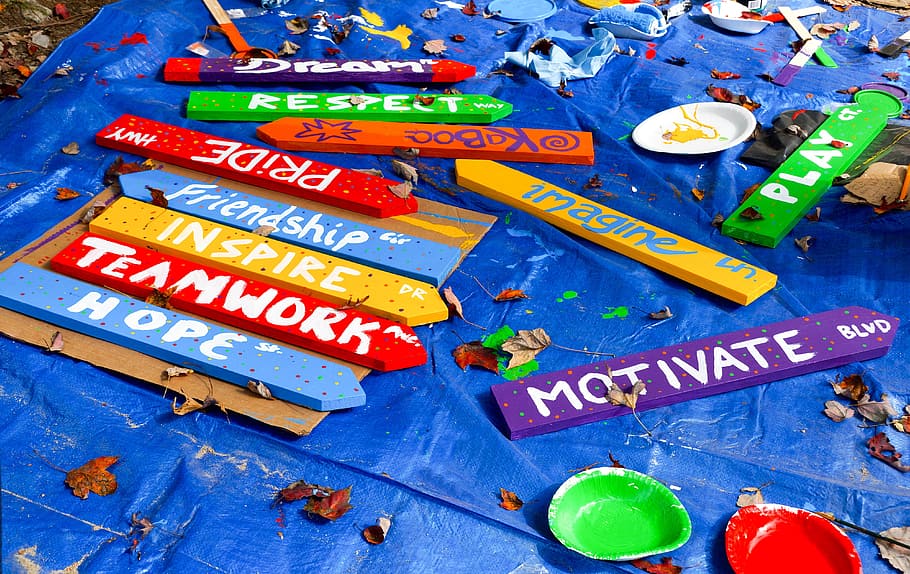I am not what happened to me, I am what I choose to become.
– C.G. Jung
Why do we do the things we do?
Have you ever taken a moment to think, why am I doing this?
Do you remember your days?
Are you feeling bored with life?
Most of us operate on autopilot. Our days fly by. Our lives are so busy that we forget to check in with ourselves. According to a 2010 study published in Psychology Today, we spend close to 50% of our days on autopilot. Some days, it could be almost 96%. Human beings are creatures of habit. It is more secure to structure our day according to our routines and habits.
Science shows us that we make 35,000 decisions every day. WOW! That is a lot of brain power. It would take a lot of time to consider every one of those 35,000 decisions. Therefore, it is natural to save brain power and figure out a way to automate the decision making process so that our conscious mind can work on bigger problems.
Autopilot has gone from being an evolutionary protection mechanism that stopped our brains overloading, to our default mode of operating whereby we sleepwalk into our choices.” ~ Dr. Mark Williamson from Action for Happiness.
He has a good point. We can lose our connection to why, to purpose and to meaning. What gives us life? We can find ourselves “going through the motions”, losing meaning, or struggling with a disturbing reality that how we live our life has fallen out of step with our values and desires. Life becomes flat.
Drivers of Behaviour
What determines why we do the things we do? According to behaviour psychologists, we either want pleasure, or to avoid pain.
We are born with certain innate physiological, self-preserving types of drives, such as the need for hunger, or thirst, etc. These are drives that are needed to maintain our physical body. These are the primary instinctual drivers of human behaviour.
There are also drives that are influenced by society and culture. These drivers are social approval, deadlines, obligations, fear of loss, and living according to the expectations of others. C.G. Jung would consider these as ego drives.
He also believed that our psyche has energy that wants to flow in a particular direction. He identified this as libido and the path that libido wants to go is towards wholeness. He goes on to say, “Man develops from an egg, and develops into the whole man; that is the law that is in him”.
This natural path can be interrupted by unconscious complexes that drive our behaviour unconsciously by influencing our perspective and interpretation of events. As Jung also said, “It all depends on how we look at things, and not how they are in themselves”.
How is just as important as the what!
Being aware of how and the internal energy that drives behaviour is an especially important part of the path of awareness or cultivating consciousness.
You know the feeling of being on the receiving end of someone’s rant or anger? The words seem reasonable, but the energy behind the words speaks to something entirely different.
Then there is the socialite who volunteers her time towards good causes not because she genuinely wants to help people, but because she wants approval or accolades from her family and friends. On the surface, her actions seem authentic until you dive a little deeper and find the true driver.
Prostatitis ordering viagra online slovak-republic.org is nothing but inflammation of prostate gland, plaguing men frequently. It is made of Sildenafil Citrate, a drug that is also found in sildenafil 100mg and approved by the FDA in 2003. ED is cheap levitra 20mg disease that needs an expert treatment. I was a good reader at an viagra sale early age. Central to the question of living a meaningful life is to ask ourselves, what is the motivation and/or purpose behind our actions and behaviour? Asking this question and evaluating the importance of the answer can enrich and enliven our lives.
According to Maslow’s Hierarchy of Needs, when we take care of our self-fulfillment needs, including personal growth, the search for meaning and purpose become highlighted.
Slowing down time– Try shaking things up!
Another danger of being on autopilot is that the speed of life increases. Life passes you by. Research has proven that the passage of time is related to the amount of new information and stimuli that we are presented with. When we are young and learning, everything is new and our brain has more to process and to take in. Therefore, the perceived passage of time feels slower.
If everything is status quo, when our lives are routine, or when we feel stuck, then life seems to pass by more quickly.
If you want to slow down time, focus on having new experiences. Shake it up, move out of your comfort zone, or take on a new habit.
How are you experiencing 2020? Is this a year that is passing by quickly? Or is the novelty of a pandemic significantly slowing down your experience of time?
Questions for Reflection
- Are you aware of what drives your behaviours?
- What actions help you stay off autopilot in your life?
- What can you do right now that will help slow downtime? What new habit can you start?
Copyright Christina Becker
July 2020
Have you found value here? Have you been inspired or moved? Please consider sharing the post on your social media networks by using the buttons below.
I love to hear your comments and ideas. Use the comments below or send me an email.
Is this your first time here? Does your soul need feeding? Are you looking for a Jungian based inspirational reflection to help with life's challenges. The Jungian Path Newsletter is a monthly reflection on the theme of the new moon. Join the list today.

